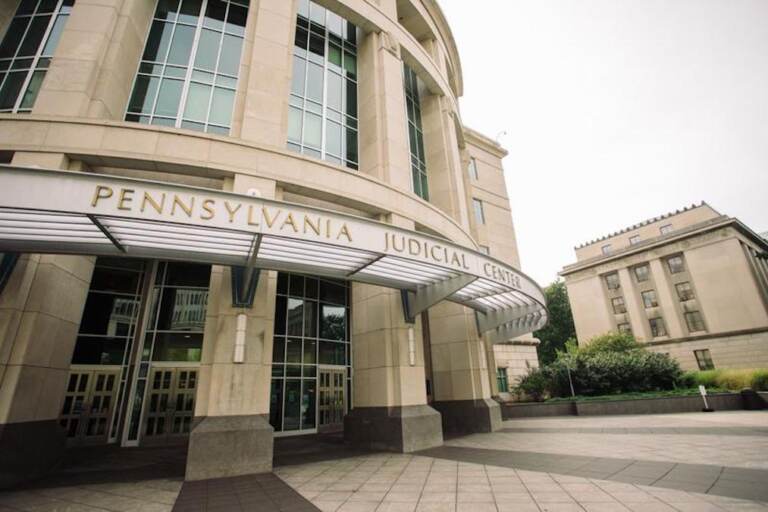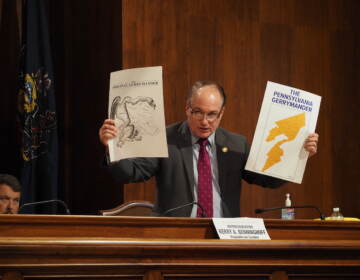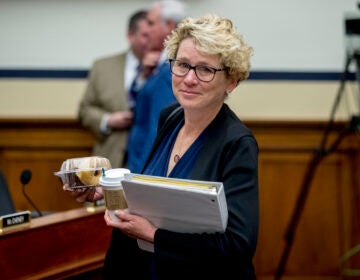Pa. Supreme Court rules against ‘Marsy’s Law’ amendment voters supported
Pennsylvania’s highest court is putting a final nail into the coffin of a proposed constitutional amendment that state voters supported by a large margin more than two years

The exterior of the Pennsylvania Judicial Center. (Kent M. Wilhelm/Spotlight PA)
Pennsylvania’s highest court on Tuesday hammered a final nail into the coffin of a proposed victims’ rights constitutional amendment that has never gone into effect, even though state voters supported it by a large margin in a referendum more than two years ago.
The justices ruled 6-1 that the sprawling proposal violated the Pennsylvania Constitution’s requirement that amendments address a single topic to prevent lawmakers from bundling together items that might not pass on their individual merits.
Unofficial tallies indicate the so-called “Marsy’s Law” amendment question passed by a ratio of 3 to 1 in 2019, but a lower state court put it on hold while litigation played out. A Commonwealth Court judge previously ordered the Department of State to refrain from certifying those election results.
The amendment would have spelled out 15 rights for victims, including notification about cases and a right to attend and weigh in during plea hearings, sentencings and parole proceedings. It also would have addressed how victims can recover property and given them an ability to reject defense subpoenas.
Justice Debra Todd wrote in the majority opinion the amendment “was, in actuality, a collection of amendments” that were not sufficiently “interrelated in purpose and function.” She said the proposal would have brought “sweeping and complex changes” to the state’s criminal justice process.
The court majority said it “can easily envision a voter supporting one or more of these rights without approving of all of them,” so voters needed to be able to weigh in on them separately.
“Bail conditions could have been revised without also altering the governor’s pardon power,” Todd wrote. “Likewise, altering the governor’s pardon power does not depend on also altering this court’s authority to promulgate procedural rules for the courts of this commonwealth.”
In a lone dissent, Justice Sallie Mundy said the amendment’s proposed changes were narrowly tailored and had the singular objective of “establishing for victims of crime justice and due process” and did not substantively alter other existing state constitutional provisions.
WHYY is your source for fact-based, in-depth journalism and information. As a nonprofit organization, we rely on financial support from readers like you. Please give today.






